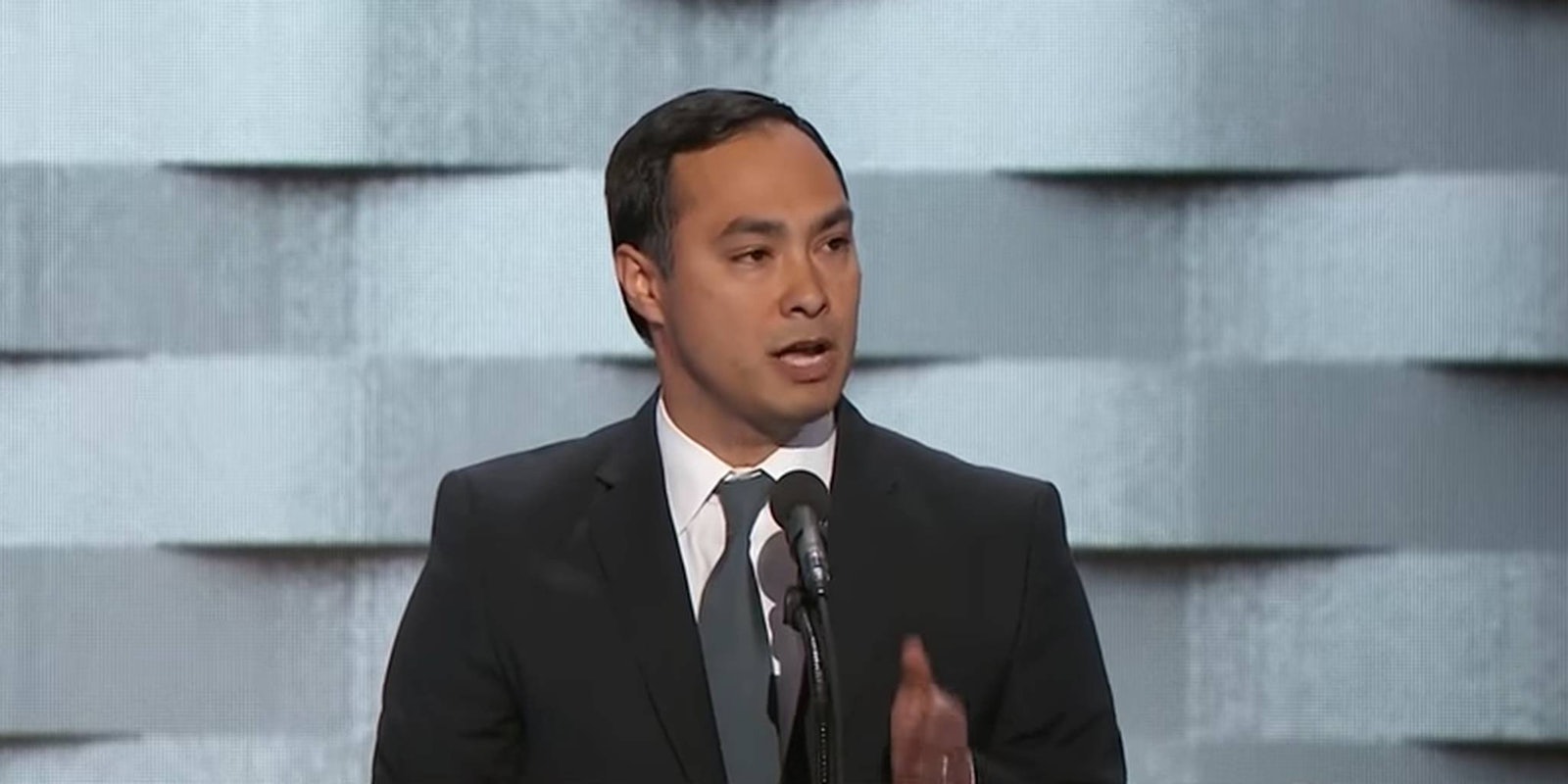Democrats in Congress believe that President Donald Trump overstepped his constitutional authority when he issued an executive order on immigration that banned travel from seven Muslim-majority nations.
Rep. Joaquin Castro (D-Texas) on Tuesday told Buzzfeed News that he is calling for Congress to investigate “whether President Trump intentionally exceeded his constitutional authority.”
Trump’s executive order on immigration is being met with legal challenges and global criticism. Reports that citizens of the impacted nations who are lawful U.S. permanent residents are being detained or questioned heavily at airports nationwide has caused further concern.
Customs and Border Patrol (CBP) agents defied emergency court orders from federal judges over the weekend that ordered a temporary halt to the deportation of people from the countries listed in the travel ban.
Castro tweeted that if Trump ignored judicial orders, this could be cause for disciplinary action.
If Pres. Trump ordered CBP to ignore a judicial order he should be censured as a warning. If he does it again Congress should remove him. https://t.co/DPeVgAqk5w
— Joaquin Castro (@JoaquinCastrotx) February 1, 2017
This wouldn’t be the first time Department of Homeland Security (DHS) defied judicial orders. DHS ignored a 2015 injunction ordered by a federal judge in Texas against former President Barack Obama’s immigration amnesty plan.
Sens. Dick Durbin (D-Ill.) and Tammy Duckworth (D-Ill.) asked the Department of Homeland Security’s inspector general on Sunday to launch an investigation into how CBP handled the demands laid out in the order.
“The chaotic execution of this [executive order] … raises serious concerns in regard to whether taxpayer dollars were efficiently and effectively spent, rather than wasted on unwarranted and unjust detentions of lawful permanent residents (LPRs) and others who posed no security threat, and who had already been authorized by the United States Government to enter our country,” wrote the senators.
Many Democrats saw the hasty firing of former Acting Attorney General Sally Yates on Monday evening after she ordered the Department of Justice in a letter to not defend the executive order in court as proof that the Trump administration had something to hide.
Durbin and other Democrats in the Senate Judiciary Committee wrote a letter to Yates on Monday asking her to confirm reports that Trump’s executive orders had not been reviewed by DOJ’s Office of Legal Counsel.
The OLC later clarified that they had reviewed Trump’s executive orders for legality.
In her letter on Monday evening, Yates said she looked at evidence outside of the OLC’s scope—such as anti-Muslim statements made by Trump and those in his administration—to reach her conclusion that the DOJ would not defend Trump’s travel ban:.
“My role is different from that of the Office of Legal Counsel (OLC), which, through administrations of both parties, has reviewed Executive Orders for form and legality before they are issued, OLC’s review is limited to the narrow question of whether, in OLC’s view, a proposed Executive Order is lawful on its face and properly drafted. Its review does not take account of statements made by an administration or it surrogates close in time to the issuance of an Executive Order that may bear on the order’s purpose. And importantly, it does not address whether any policy choice embodied in an Executive Order is wise or just.”
Sources familiar with Yates’ decision told the New York Times that the career prosecutor believed the executive order was written specifically to disadvantage Muslims.
Brian Fallon, a former public affairs official at the Department of Justice, wrote in Politico that comments made by Trump and his surrogates regarding the “Muslim ban” could be admissible in court and serve as proof that Trump was in violation of the Constitution’s own ban on religious preference:
“These admissions will certainly be invoked in court by the ACLU and others as proof that the order violates the Constitution’s establishment clause, which prohibits the government from assigning preference to one religious denomination over another. The comments clearly factored into Yates’ thinking, too, based on her references on Monday to “statements by an administration or it[s] surrogates close in time to the issuance of an Executive order that may bear on the order’s purpose.”
Massachusetts, New York, Virginia, and Washington plan to battle Trump’s travel ban in court.


